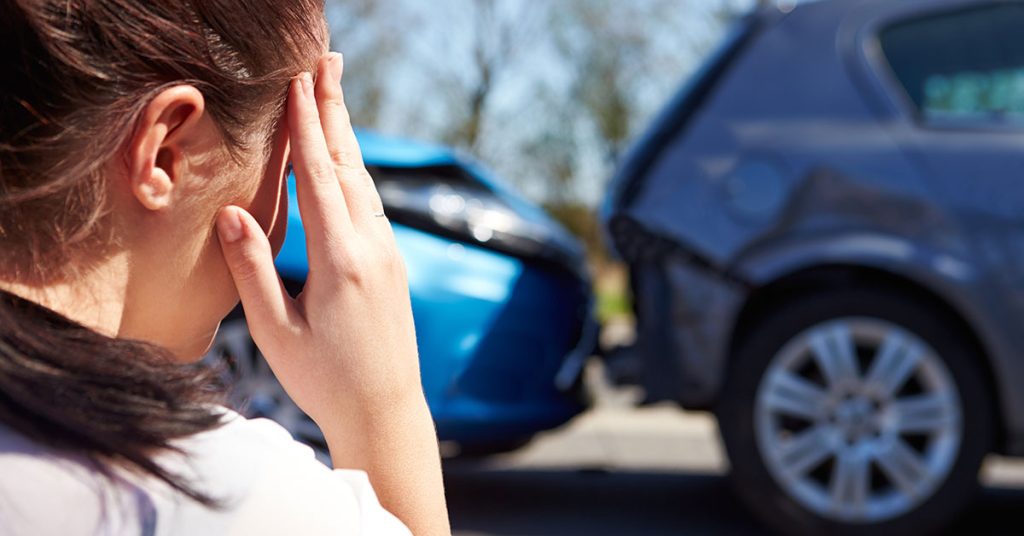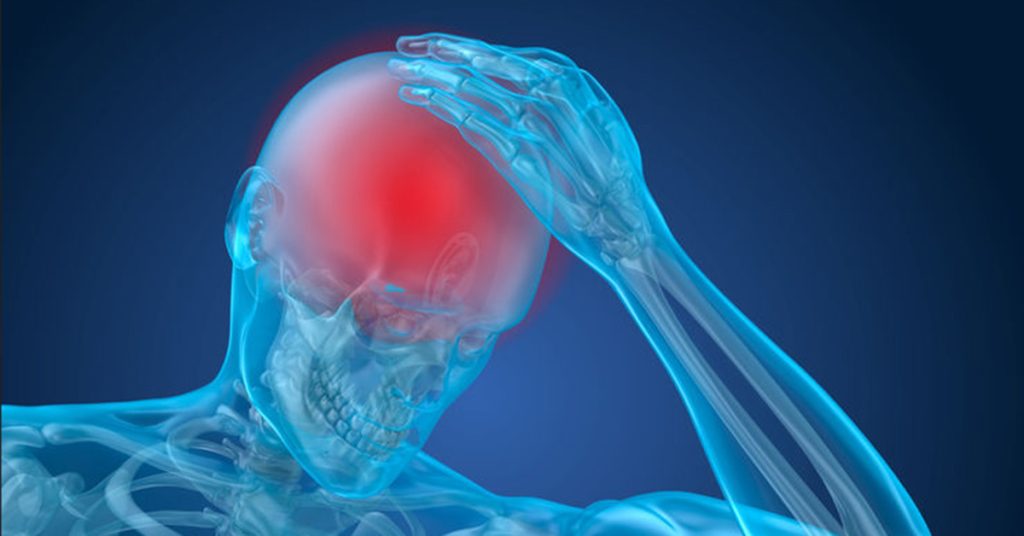Posts Tagged ‘Brain Injury Awareness Month’
Brain Injury Awareness Month: Would You Recognize the Symptoms of a Concussion?

After a car accident is a critical time to seek medical care and screening for a concussion.
March is Brain Injury Awareness Month. Nearly 12 years ago, Massachusetts lawmakers passed legislation to develop a concussion safety program for high school athletes. Before they play, student-athletes and their parents must now learn about concussion symptoms. If students are injured, they must follow step-by-step guidelines for recovery. The goal is to make sure students fully heal from concussions.
Just as students have learned about concussions, Brain Injury Awareness Month offers others a chance to learn.
These are essential lessons, helping us care for ourselves and our families. The sooner one identifies potential concussion symptoms, the sooner they can seek a medical evaluation and begin rest and recovery. Below, we write about concussions, symptoms and high-risk situations when one may consider seeking a medical evaluation as a precaution.
What is a Concussion?
A concussion is often called a mild traumatic brain injury or “mild TBI.” A concussion may follow a bump, blow or jolt to the head, or a hit to the body that causes the head and brain to move quickly back and forth, according to the Centers for Disease Control and Prevention (CDC).
There may be no visible bruising, skull fracture or head injury, but the sudden movement can impact the brain’s function.
When one suffers a concussion, they may experience a range of symptoms impacting their health. It can be very difficult to read the symptoms, which may include one or more symptoms:
- headaches
- memory loss
- feeling groggy
- difficulty sleeping (or sleeping too much)
- mood and behavior changes
- balance problems
- slurred speech
- dizziness
- nausea or vomiting
- confusion
- decreased coordination
- sensitivity to light
- irritability
- In adults, one pupil may appear larger than the other.
Symptoms may appear right away or in the hours after a concussion, or they may be delayed a few days and weeks.
One misconception is a person will lose consciousness if they suffer a concussion. This is not always true. In fact, on the sports field, one coach said athletes only lose consciousness in about 10 percent of all concussions cases (Source: Heads Up Video: What is a Concussion?, CDC).
When to Consider Seeking Medical Care
As important as it is to learn about concussion symptoms, there are also times when you should just receive medical care as a precaution. This includes after children’s injuries, sports injuries, car accidents, falls or bicycle accidents.
Children and Student-Athletes

Respond promptly if you suspect your child has sustained a concussion.
Start learning now before you suspect a possible injury. Look to your child’s pediatrician and school for information on concussion prevention, symptoms and how to respond to a potential concussion. This is important because your child’s brain is going to support them throughout their life and by understanding a few basics, you can minimize their risk of suffering an injury. But if your child does suffer a concussion at some point, what you learn now will help you be ready to help them receive care and fully heal before they start their full routines up again. To help you get started, read our page on the Massachusetts sports concussion safety law and helmet laws for children. Another resource is the CDC Heads Up web page.
Motor Vehicle Crashes
Motor vehicle crashes are a leading cause of concussions and traumatic brain injury. The violent force of a collision can cause many injuries, from whip-lash to broken bones and head injuries. One can suffer a concussion in crashes at any speed and unlike other types of injuries, see no visible signs. One does not have to hit their head to sustain a concussion.
It can be hard to know whether you were injured after a car accident, so it is best to be proactive and call your primary care physician or visit a hospital emergency room.
Falls
When someone falls and hits the ground, they can suffer a concussion and it may be hard to recognize the signs, especially if the person is alone.
Older adults and younger children are more vulnerable to suffering falls. They are also at the highest risk for going without treatment. Consider how difficult it is for many adults to recognize they may have suffered a concussion; then think about young children, who may have limited speech. When it comes to young children, look for signs of discomfort, such as constant crying, trouble sleeping or the child may not eat. Contact your child’s pediatrician so they can advise you on the next step.
As for older adults, the CDC reports more than 34,000 adults age 65 and older died in falls in 2019. Many of these falls involved TBI and broken bones.
If you have an older relative or friend, talk to them about the importance of seeking medical care after any type of fall. Immediate treatment can help them identify whether they have sustained a concussion or other injuries. This puts their primary care physician in a good position to help them manage their recovery, with their full understanding of the person’s medical conditions and what medications they take.
Bicycle-Related Head Injuries
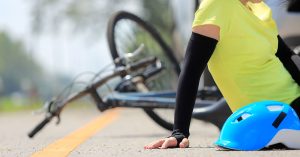
Cyclists can suffer many serious injuries in a crash. Always visit a hospital emergency room as a precaution.
Make a plan for safety. Should you ever fall on your bike or be involved in a bicycle accident, commit to seek immediate medical care right away. Have a doctor evaluate whether you sustained a concussion.
Medical care is critical for cyclists. In addition to concussions, cyclists are vulnerable to suffering broken bones around the face, jaw and fractured teeth in crashes, along with other injuries. While you may try to treat your own pain, a medical exam is the best first step to determine the source of all your swelling and injuries.
As a cyclist, you can take an important step and protect against head injury by wearing a helmet. When cyclists wear helmets, the reality is they may still suffer injuries in a collision. But cyclists are more likely to survive a bike crash without the cognitive, physical or mental complications of a severe and traumatic brain injury. This is critically important because it improves one’s long-term chances for making a full recovery.
According to the CDC, helmets reduce the risk of head injury by absorbing much of the impact energy from a fall or a bicycle accident. Helmets protect the skull and brain from more severe injury.
After a Concussion, The Importance of Follow Up Medical Care
Another time to consider medical care is in the days, weeks and months following your initial treatment for a concussion. It is important that you fully heal. If you suffer a second concussion while you are still recovering, you are at risk for second impact syndrome and long-term complications.
The CDC reports many concussions are not fatal. Many people recover from concussions within a few weeks, with rest, plenty of sleep and patience.
But some injuries take more time. The National Institute of Health reports one study found nearly a quarter of patients struggle with physical and mental problems related to a concussion a full year later. Another study tracked 831 patients at 11 major trauma centers across the country and found not every patient receives follow-up care.
- Within three months of their injury, fewer than half of the patients – 44 percent – had followed up with a health care professional.
- Notably, when patients visited medical centers with dedicated TBI clinics, they were more likely to receive follow-up care.
- Patients who had more serious injuries (those who had CT Scans that showed tissue damage) had a higher rate for follow-up care, but even then only 61 percent sought follow-up care.
There are many reasons patients may not follow up after a concussion. This study noted just 42 percent of patients received educational materials as they left treatment; just 27 percent received a follow-up call from the hospital.
Make it your priority to follow up with your primary care doctor for as long as it takes.
Follow your doctor’s instructions for every phase of your recovery: when you are ready to drive and go back to work. Follow any limits your doctor sets, such as restricting cell phone use.
Take the family member along to your doctor’s appointments. This gives your loved one a chance to learn about the symptoms of a concussion and how you should progress.
Ask a loved one to play an active role in your treatment and help you observe your recovery. You may need help tracking activities at times, such as how many hours you sleep or how many times you contact your doctor with concerns. Write down any medical instructions you receive, or print messages from your online medical records, so you and your loved one can review them together over the next few months.
Free Legal Consultation – Boston TBI Attorneys
At Breakstone, White & Gluck, our Boston personal injury lawyers have over 100 years combined experience representing those who have been seriously injured or killed by the negligence or wrongdoing of others.
Our lawyers have extensive experience representing clients who have suffered concussions and traumatic brain injuries as a result of someone else’s negligence, helping them recover compensation for their medical expenses, loss of future income and other damages.
Our attorneys represent clients in Boston, Cambridge, Arlington, Somerville, Everett, Quincy, Milton and across Massachusetts. If you have been injured, learn your legal rights. For a free legal consultation, call 800-379-1244 or 617-723-7676 or use our contact form.
Brain Injury Awareness Month: Simple Steps You Can Take to Protect Your Children

March is Brain Injury Awareness Month, a good time to ask if you or your children need a new bicycle helmet.
Each March, the Centers for Disease Control and Prevention (CDC) observes Brain Injury Awareness Month to highlight new research on injury prevention.
This is a good time for parents to reflect upon what you can do to protect yourselves and your children from a concussion. To start, you can purchase a bicycle helmet for your child and buckle them up in an age-appropriate car seat. Before you sign up for youth sports, really learn about the activity and consult your child’s pediatrician. The CDC recently shared this study, which suggests non-contact or flag football programs may be safer for children under 14 because there are fewer head impacts.
You can also commit to learn how to recognize the symptoms of a concussion so you can properly respond and seek medical attention for your child. This is an ongoing learning process which gets stronger, through conversation with your pediatrician, your child’s school and with your own family members.
Wear a Helmet. In Massachusetts, your child is required to wear a protective helmet while riding a bicycle or scooter. Read our blog, “How to Fit a Bicycle Helmet.” We also share some resources on Massachusetts helmet laws at the bottom of this webpage.
Massachusetts Concussion Protocol for Students. Before each season, your child’s middle or high school has a responsibility to share information about the Massachusetts youth sports concussion law with you.
Massachusetts law requires schools to develop concussion safety programs and provide training for students, parents, coaches and others on how to identify concussion symptoms. Schools must also explain the protocol for removing a student who has been injured from play.
Students suspected of having a concussion must see a doctor and must receive a doctor’s note before returning to practice or a game. It is essential to understand just how your school or coach will communicate with you.
No one ever wants to think about their child possibly suffering an injury. But the state protocol is largely about taking steps to prevent an injury and how to identify potential injuries. This is essential reading that will help you protect your child. Take time to read if even if you have already seen these materials in the past. Also take time to share and discuss this information with your spouse, baby sister or family members who care for your child.
Learn more about the Massachusetts concussion guidelines for student athletes and the CDC’s Heads Up Concussion page.
Commit to Watch for Symptoms. There are some situations when it is clear a parent should seek medical attention for their child. For instance, if your child’s school alerts you or if your child was injured in a car accident, those are your warnings.
However, the symptoms of a concussion may be less clear when children are injured while playing at home or other situations. To help you learn the signs, we have compiled a list of physical, emotional and sleep-related symptoms which may indicate you should contact your child’s pediatrician on our concussion webpage. These are compiled from the CDC web page on concussion symptoms.
Please consider the symptoms collectively, along with your child’s recent activities on the sports field or playing at home or with friends. If you have reason for concern, make the decision to contact your child’s pediatrician or visit the emergency room.
Free Legal Consultation – Boston Personal Injury Lawyers
At Breakstone, White & Gluck, our personal injury lawyers have extensive experience representing those who have suffered concussions, second-impact concussions and brain injuries. Over the past three decades, our attorneys have counseled and guided many clients to the financial results they need to recover from these complex injuries. For a free legal consultation, contact us at 800-379-1244 or 617-723-7676.
In addition to our work, Breakstone, White & Gluck works to help children and families protect against head injuries through our Project KidSafe campaign. We have proudly given away more than 30,000 bicycle helmets to children across Massachusetts.
March is Brain Injury Awareness Month
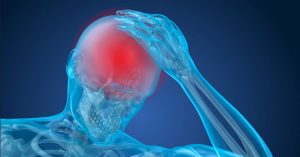
March is Brain Injury Awareness Month. Take the opportunity to learn
Today, there is greater awareness around brain injuries. As a result, many people are treating brain injuries earlier and living healthier lives.
The Centers for Disease Control and Prevention (CDC) observes Brain Injury Awareness Month in March, to provide education about potential concussion symptoms, ongoing research and the needs of those living with a brain injury. This comes at the right time for families, as many children and teenagers plan to participate in spring sports.
Many brain injuries are caused by car accidents, falls or violence. But over the past decade, we have learned more about young children and student athletes suffering concussions on the sports field. In fact, from 2010 to 2016, nearly two million children were treated in emergency rooms for sports-related traumatic brain injuries (TBI), according to the CDC website. Sports associated with the highest number of ER visits: football, cycling, basketball, playground activities and soccer.
Among males 17 and younger, football was involved in 27 percent of all sports-related TBI visits to the ER, more than any other activity. In the same age group, females playing soccer, playground activities and basketball made the highest number of ER visits for TBI. Among children under 5, playground activity resulted in the most ER visits for TBI.
As we continue learning about injuries to children and student athletes, research continues to show older Americans are highly vulnerable to brain injuries. They are the most likely to be hospitalized for TBIs, according to the CDC.
At Breakstone, White & Gluck, our attorneys encourage you to look at the CDC website so you can be informed about the symptoms of traumatic brain injury and concussion. If you observe symptoms in yourself or your children, immediately call your doctor to be examined. Also guide older family members to medical treatment. This is paramount because a brain injury left untreated can result in long-term impairment or death. When someone receives immediate treatment, effective diagnosis and management early on is critical.
What is a Traumatic Brain Injury?
According to the CDC, a traumatic brain injury can be caused by a bump, blow or jolt to the head. There are traumatic brain injuries and mild traumatic brain injuries, which are often called concussions.
What are the Symptoms of a Traumatic Brain Injury?
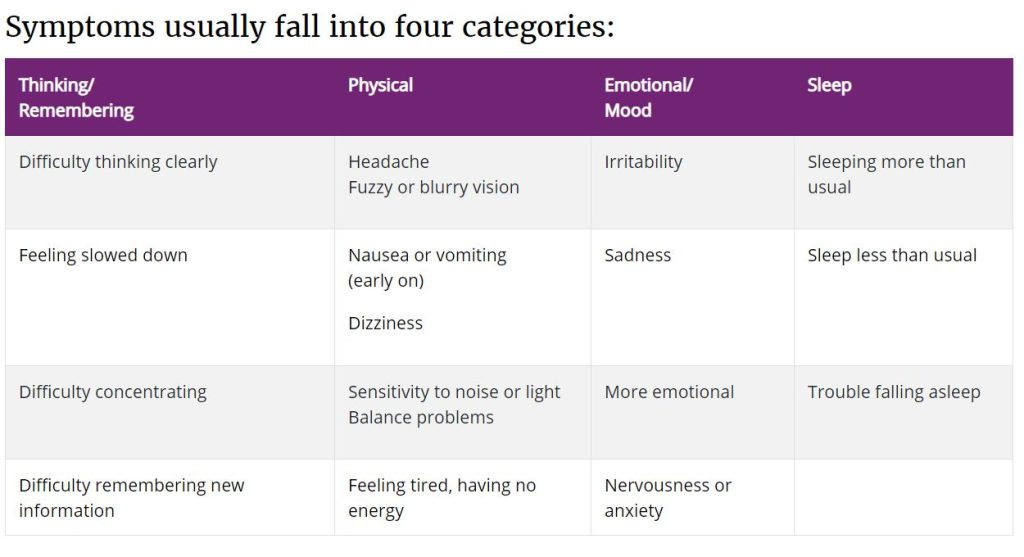
Concussion Symptoms. Courtesy CDC Website
You may observe some of these symptoms immediately after someone sustains a brain injury. Or symptoms may not emerge for several days. It’s also important to note that not everyone experiences the same symptoms.
Symptoms include difficulty thinking, concentrating or remembering or feeling slowed down.
Physical symptoms may include headaches, nausea, vomiting or fatigue. Some people are sensitive to noise or light. Others have trouble balancing themselves.
When someone suffers a head injury, it’s common for their sleep to be disrupted. They may sleep more or less than normal. Another sign is having trouble falling asleep. More extreme emotions are another symptom. The person may be irritable, sad, more emotional or exhibit high anxiety and nervousness.
Younger children may exhibit some of the above symptoms, but parents should also watch for crying inconsolably, more temper tantrums or getting easily upset and having trouble keeping up with skills they are learning (toilet training for instance). They may also lack interest in their normal activities.
Sports-Related Concussions and TBI in Massachusetts
Be aware of how concussions happen. After a car accident or truck accident, always receive immediate medical attention to make sure you have not suffered a TBI. When an elderly relative slips or a child falls on the playground, check in with the doctor. Do this anytime you observe someone suffer from any type of physical impact to the head.
When you sign your child up to play a sport, ask the coaches for the concussion protocol. In Massachusetts, middle and high schools are required to have documented procedures regarding concussion injuries and prevention. Passed in 2010, M.G.L. c.111 § 222 requires parents and students to participate in concussion awareness training so they can recognize symptoms and receive early treatment. The law also requires students to be removed from play if they may have suffered a concussion. They can only return with medical clearance.
Under the law, public middle and high schools and those subject to Massachusetts Interscholastic Athletic Association (MIAA) regulations must have concussion protocols. Other sports leagues are not required under Massachusetts law, but they should all have a concussion policy on their website.
Final Note
- At home, educate older children about TBI symptoms. Ask them questions when you sense something may be off and use the above chart to determine whether you may need to call the doctor.
- Ask for concussion safety protocols at schools and daycare centers, and when children participate in sports leagues. Attend concussion trainings.
- Watch younger children and older adults closely. Remember young children may not be able to communicate symptoms and pain with you and older adults may not recognize symptoms in themselves, especially if they have other medical conditions.
- Recruit as many family members as you can in watching for signs in young children, teens and the elderly.
- Visit some of the online resources below and share them with family members.
Concussion Prevention Resources for Families
Massachusetts Law on Concussion Prevention in Sports
105 CMR 201.00: Head injuries and concussions in extracurricular activities
Additional Resources
Heads Up to Brain Injury Awareness Training, CDC
Facts About Concussion and Brain Injury – Where to Get Help, CDC (a resource for all ages)
Sports Related Concussions and Head Injuries, Mass.gov
Concussion Trainings, Massachusetts Department of Public Health
Returning to School After a Concussion, Mass.gov
About Breakstone, White & Gluck – Boston Personal Injury Lawyers
With more than 100 years combined experience, Breakstone, White & Gluck of Boston is one of the most respected personal injury law firms in Massachusetts. Our attorneys represent individuals who have suffered traumatic brain injuries or mild traumatic brain injuries due to the negligence of another individual, organization or corporate entity.
If you have been injured, learn your legal rights for seeking financial compensation and obtaining medical care. For a free legal consultation, call Breakstone, White & Gluck at 800-379-1244 or 617-723-7676 or you can use our contact form.


